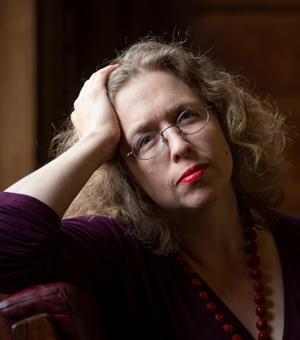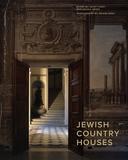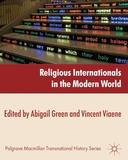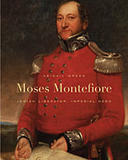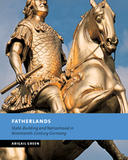Professor Abigail Green
My first book, Fatherlands: state-building and nationhood in 19th century Germany (2001), explored the tensions between state-building and nationhood in Germany through a comparative analysis of Hanover, Saxony and Wurtemberg. Shortlisted in the 2002 Das Historisches Buch awards.
More recently, my work has focused on international Jewish history and transnational humanitarian activism. I won the Sami Rohr Choice Award 2012 for my biography of Sir Moses Montefiore (1784-1885), the preeminent Jewish figure of the 19th century. Moses Montefiore: Jewish Liberator, Imperial Hero (2010) was also named a New Republic Best Book of 2010, and a TLS Book of the Year 2010. My work on Montefiore generated my broader interest in religious internationalism, and together with Vincent Viaene I edited Religious Internationals in the Modern World (2012), which examines this phenomenon comparatively across different religious traditions. Thanks to Jaclyn Granick I am now rethinking some of my work on Jewish internationalism from a gender perspective through a special issue of the Journal of Modern Jewish Studies (2021).
I have been awarded a 3 year Senior Research Fellowship by the Leverhulme Trust to work on my new project, a book on liberalism and the Jews tentatively entitled Children of 1848: Liberalism and the Jews from the Revolutions to Human Rights. This project deals centrally with the revolutions of 1848 and their legacy across generations, which I trace through revolutionary families. My research in this area has prompted a number of collaborative initiatives, most recently: Jews, Liberalism, Antisemitism: A Global History (2020), which I edited with Simon Levis Sullam.
Working in partnership with colleagues at the National Trust, the AEPJ, Strawberry Hill House and Waddesdon Manor (many of which were sites of Jewish liberal sociability, politics and activism), I am also leading a major 4 year AHRC-funded project on Jewish country houses which has both academic and more heritage-oriented dimensions.
Previous research has focused on the interaction between regionalism and nationalism in 19th century Germany; on the intersection between international Jewish history, humanitarianism and imperialism; and on religious internationalism as a comparative phenomenon I welcome proposals from graduates that intersect with any of these broad research interests
Featured Publications
Religious Internationals in the Modern World: Globalization and Faith Communities since 1750 (Palgrave Macmillan Transnational History Series, Sep 2012)
Moses Montefiore: Jewish Liberator, Imperial Hero (Harvard University Press, February 2010).
Fatherlands: State-Building and Nationhood in Nineteenth-Century Germany
In the Media
Turban confusion, Jewish heritage, Hong Kong Christian activists
‘The Walhalla Hall of Heroes’, part of Germany. Memories of a nation’
Current DPhil Students
Teaching
I would be willing to hear from potential DPhil students regarding: European history in the long 19th century, modern Jewish history.
I currently teach:
|
Prelims |
FHS |
|
GHIV |
GH 11 |
|
Approaches Sociology |
GH 12 |
|
Tocqueville |
Nationalism in Western Europe |
|
Meinecke & Kehr |
Disciplines of History |
|
HBI VI |
|
|
1919: Remaking the World |


